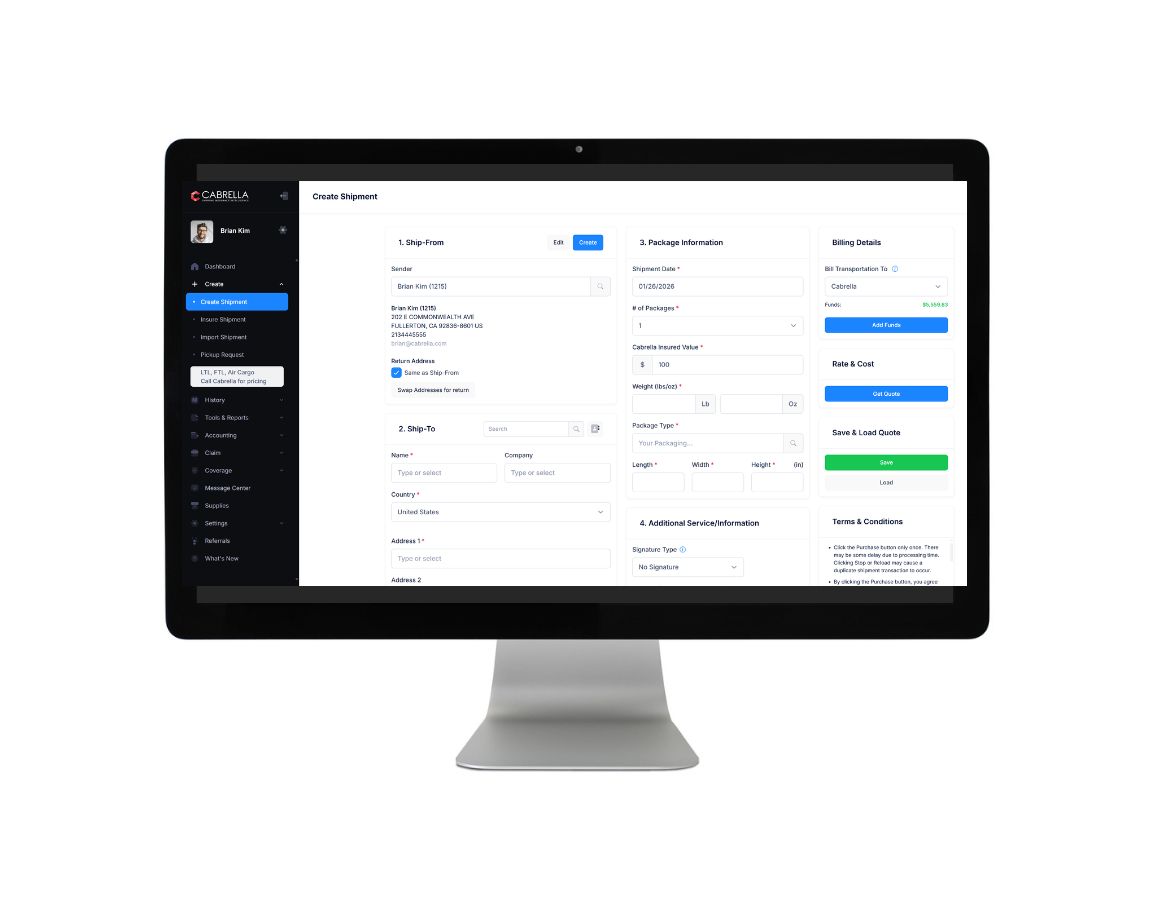Should You Use Amazon's FBA?

Those with e-commerce experience are probably aware of the frustrations that come along with the order fulfillment process. Receiving, processing, sending, and tracking shipments to customers can be one of the most challenging and time-consuming aspects of life for an online retailer.

Processing an increasing number of requests by yourself can quickly lead to errors, resulting in dissatisfied customers. Fulfillment by Amazon is an all-in-one fulfillment service for online merchants. But how does the service work, and is it right for you? We're reviewing the pros and cons of FBA.
What is Amazon's FBA?

Fulfillment by Amazon (FBA) is an end-to-end fulfillment service for e-commerce business owners. Amazon will select, pack, and send your products to buyers in addition to providing customer support and handling returns. These services are available for a monthly inventory storage fee and fulfillment fee per item.
Advantages of FBA

First, let's cover the pros of leveraging FBA and examine how the service can help you grow your business.
Convenience
The main advantage of Amazon FBA is the convenience of outsourcing your fulfillment logistics tasks. Amazon stores, packs, and sends your order in addition to handling returns.
If you've handled shipments yourself before, you understand how time-consuming this process can be. Printing shipping labels, packaging your products correctly, and tracking various orders can be a headache.
Instead of trying to process dozens of orders by yourself, you can allow Amazon to take care of the fulfillment aspect. Additionally, Amazon will provide customer service and handle returns. As a result, you can focus on the bigger picture of growing your business.
Gain Exposure for Your Business

If you're selling through Amazon, you can gain additional exposure using FBA. The Amazon Buy Box favors products sold through FBA and places them higher in the list of search results. Consequently, more customers see your product, which increases the likelihood of a purchase.
Another advantage is that your products will be shipped with the “Fulfillment by Amazon” logo. This ability to leverage Amazon's reputation will help you build credibility with consumers.
Prime Benefits
Amazon FBA customers automatically qualify for Prime two-day shipping at no extra cost to the seller. Offering shoppers the option of fast delivery through Amazon Prime has tremendous potential to boost sales.
Consider the following example. One of your competitors is selling the same product, but only one of you is offering Prime shipping. Which product do you think the customer will choose? If consumers can have their orders by the next day, they'll probably select the seller using Prime.
Fulfill Multichannel Orders
When using Fulfillment by Amazon, you're not limited to selling through Amazon. You can sell your FBA products across multiple channels, including your company website and other e-commerce marketplaces. Your customers will benefit from a consistent and flexible shopping experience in all of your online stores.
Affordable Shipping and Storage

FBA offers affordable rates for complete handling of packing, shipping, customer service, and returns. For example, a 10 to 16 ounce, standard-size parcel costs $2.48. Monthly inventory fees start from $0.69 per cubic foot.
For many business owners, these fees are significantly lower than the cost of managing everything themselves or hiring staff. You can determine whether self-fulfillment or FBA is a more affordable option for you by using the FBA Revenue Calculator.
Disadvantages of FBA
Although there are many pros to using FBA, merchants should also be aware of the drawbacks. Before signing up, every business owner should understand a few potential downsides to the service.
Impersonal Branding

Since Amazon is providing customer service on your behalf, you'll probably find it challenging to build personal relationships with your customers. You'll have a limited influence on customer interactions. Additionally, you may have trouble establishing awareness of your own brand identity.
Your shipment will be branded with the Amazon logo, which is the first thing customers see when their packages arrive. Another disadvantage is that Amazon won't help you grow your email list. If you want to connect with and market to previous customers, these missing email addresses could be a considerable disadvantage.
Losing Track of Inventory

If you're selling many different FBA products, it can become easy to lose track of your inventory. Finding out how much of each item you have, and how much you need can be difficult. The Seller Central dashboard, although automated, isn't entirely intuitive. As a result, you might be paying storage fees for merchandise that doesn't sell.
Another con is the potential for issues to arise from pooled inventory. When Amazon receives the same products from different sellers, these items may be grouped together. As a result, the products you send to Amazon might not be the same ones that arrive at your customer's doorstep. Consequently, your customer could end up with a product of inferior quality. In some cases, these mishaps can have damaging consequences for your business's reputation.
Complicated Shipping Preparation
Packaging your shipment for its arrival at the Amazon warehouse can be one of the most challenging aspects of FBA. Amazon requires sellers to prepare merchandise according to strict ASIN/UPC standards.
You'll have to label and pack each of your products individually. If you fail to pack your items properly, Amazon will charge an additional fee to do it for you.
Another con is that you may have to send your single shipment to multiple different Amazon warehouse locations. You're responsible for ensuring that the merchandise arrives safely, adequately packaged, and on-time at the correct warehouse.
Should You Use Amazon's FBA?

There are many pros of using Fulfillment by Amazon compared to the cons. In most circumstances, FBA can be the best option for new, small, and growing businesses. The service can save online sellers a significant amount of time, which can then be invested in strategic business planning.
However, you should consider the disadvantages and possible solutions for overcoming these. For example, if you plan to ship high-value packages to FBA, a third-party shipping insurance company can help you avoid detrimental losses. Cabrella offers customizable e-commerce shipping insurance solutions for companies in every industry.
Additionally, you'll have access to intelligent shipping insurance software that allows you to monitor risks and streamline claims. By combining FBA with third-party solutions, retailers can optimize the shipping process to provide the best customer experience.
Keep Checking Out Our Other Posts
Subscribe for Email Updates









